To further standardize surgical practices, learn advanced medical concepts and management expertise, and enhance the level of surgical management, our hospital held a sharing session on perioperative management experience from Massachusetts General Hospital, Harvard Medical School on September 16, focusing on perioperative management as the starting point. The meeting specially invited Dr. Wang Jingping, an expert from Massachusetts General Hospital, Harvard Medical School, to share his experience. President Qin Yanguo, along with senior hospital leaders and Assistant President Pan Zhenxiang, attended the meeting. Present onsite were heads of the Medical Affairs Department and the Department of Critical Care Medicine, directors of various surgical departments, leaders of medical teams, representative physicians, all attending physicians and above from the Department of Anesthesiology, all head nurses from the operating room, as well as representative medical students, resident trainees, and visiting scholars. Representatives from the Medical Affairs Offices and surgical departments of affiliated and collaborative hospitals participated online. The meeting was chaired by Pan Zhenxiang.
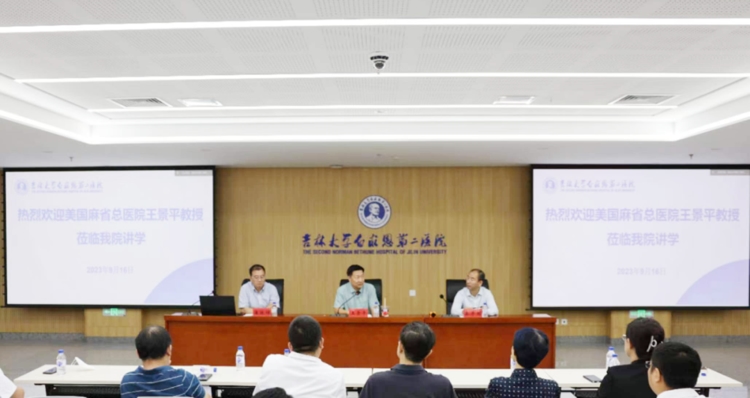
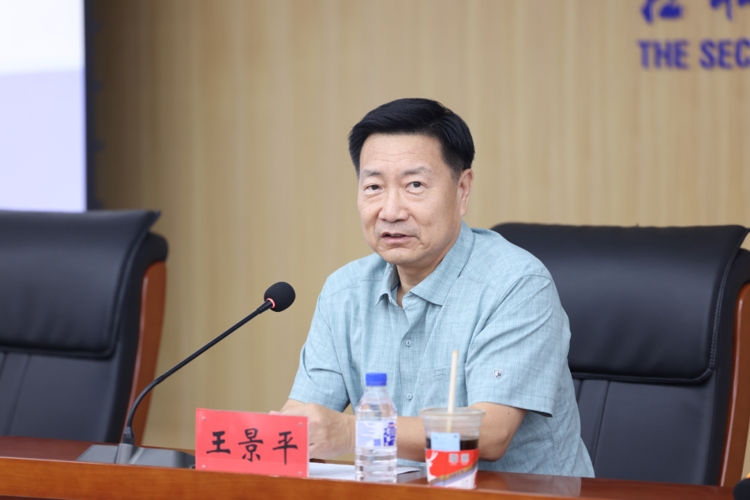
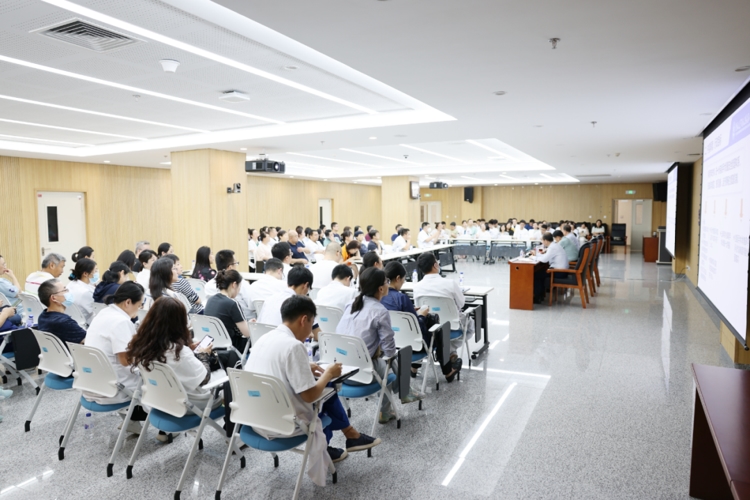
At the meeting, Dr. Wang Jingping provided a concise and insightful summary and sharing of his experience related to perioperative management. He emphasized that improving the quality of perioperative care requires focusing on two key approaches: first, a "top-down" approach, where leadership sets requirements, medical staff implement them, and a feedback mechanism is established to facilitate continuous improvement. Second, a "parallel" approach, which involves implementing multifaceted support measures, including developing rules and regulations, establishing medical quality monitoring and inspection mechanisms, reporting adverse safety events, and defining preventive protocols. Additionally, he summarized the perioperative management experience across various stages at Massachusetts General Hospital, Harvard Medical School, and highlighted the specific work of the hospital’s preoperative assessment team.
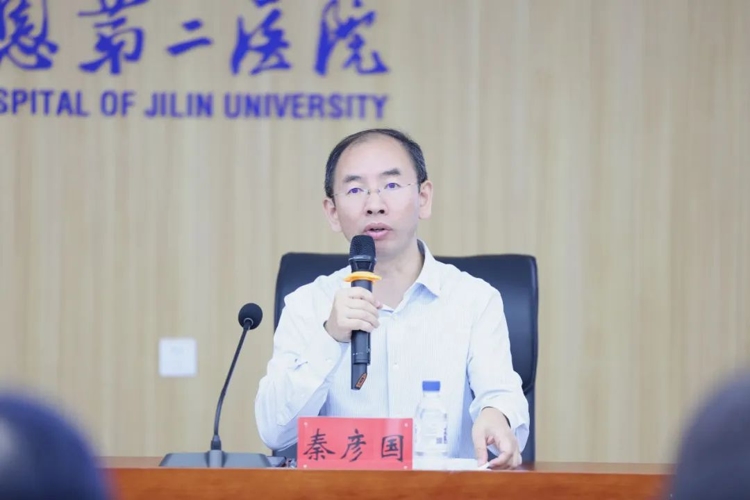
In his speech, President Qin Yanguo, on behalf of Secretary Liu Kexiang, extended a warm welcome and sincere gratitude to Dr. Wang Jingping for his presence, guidance, and long-standing support. Qin emphasized that this meeting received high attention from all departments and directors, presenting a rare opportunity for collective discussion and interactive exchange. He noted that it would contribute to the advancement of surgical and anesthetic concepts and techniques, while also playing a positive role in identifying issues and establishing mechanisms to address them.
Through this conference, it is essential to further enhance the depth and breadth of administrative thinking, particularly in terms of effectively leveraging the practical roles of various committees and forming a well-coordinated interactive mechanism, which requires continuous improvement. At the same time, Qin pointed out that while the hospital has made progress in its development, there remains significant room for improvement. He stressed the need to strengthen the application of advanced methods such as information technology and intelligent technology in preoperative preparation, with the aim of achieving early intervention in disease management.
Qin also expressed his expectations for the medical staff, hoping that under the new structure of "one hospital with three campuses," the entire institution can provide high-level medical services to better seize opportunities to leapfrog, achieve remarkable progress within the region and even nationally, and maintain a positive momentum aligned with international standards.
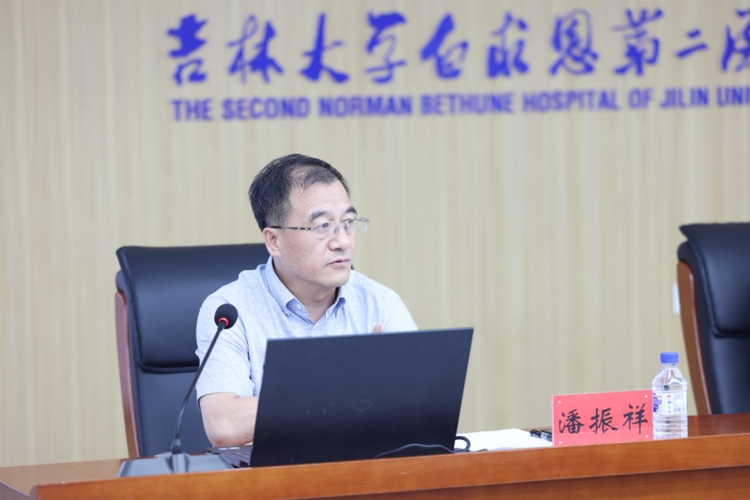
At the meeting, Pan Zhenxiang conducted an interpretation and training session on the latest Action Plan for Surgical Quality and Safety Improvement (2023–2025) issued by the National Health Commission, covering its background, key components, and implementation requirements. In light of our hospital’s actual conditions, he delivered a point-by-point interpretation and in-depth analysis of the 15 specific measures across the four key areas outlined in the plan. He also outlined the action steps for each phase of the hospital’s implementation in accordance with the plan’s requirements and provided specific work directives.
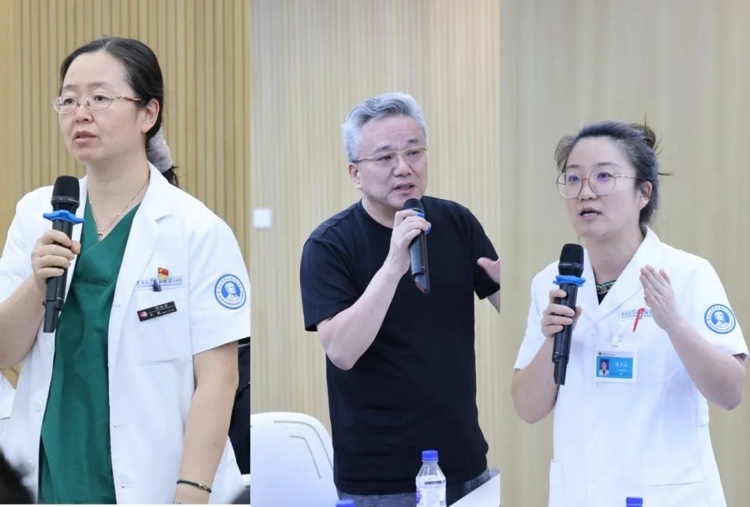
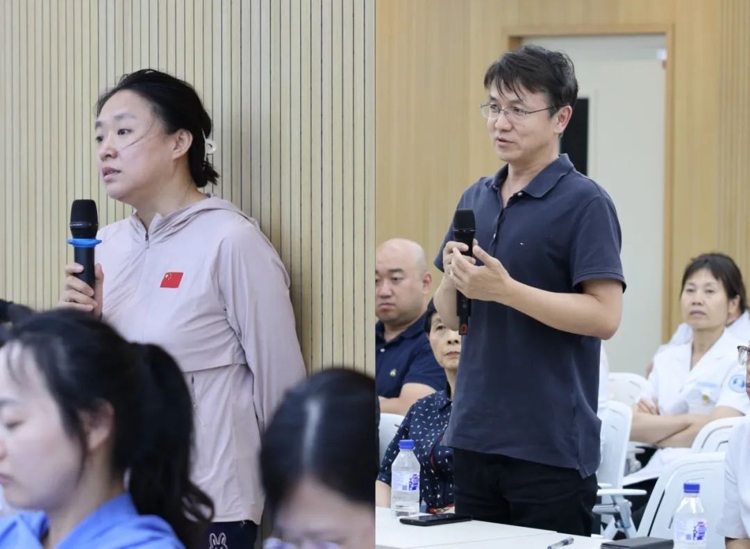
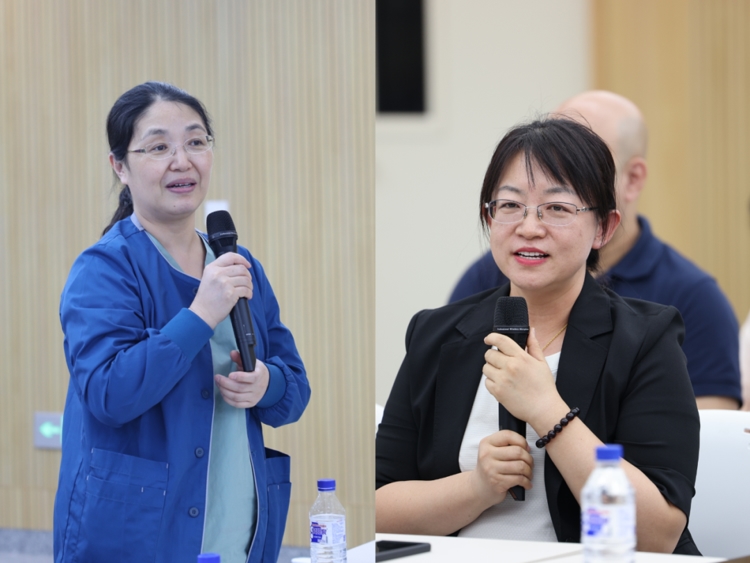
To provide more targeted and contextually relevant experience sharing tailored to our hospital’s actual needs, the meeting featured a dedicated exchange and discussion session. In a live Q&A format, Dr. Wang Jingping addressed attendees’ questions one by one. The interaction was highly enthusiastic and dynamic, with directors from relevant departments—including Medical Affairs, Anesthesiology, Gynecology, Obstetrics, and Orthopedics—engaging in in-depth and detailed discussions with Dr. Wang. Topics included the diagnosis and treatment model for specialized disease centers, the establishment of anesthesia clinics, preoperative blood pressure management, pre-delivery assessment for painless childbirth, homogenized management of medical practices, fever in patients receiving analgesic delivery, preoperative multidisciplinary discussions, and preemptive analgesia medication.
The convening of this meeting served as a valuable opportunity to enhance the quality and safety of surgical care at our hospital. It provided important guidance for fostering advanced clinical thinking among medical staff and clarifying approaches to surgical management. Moving forward, our hospital will leverage initiatives such as the Theme Campaign to Improve Medical Experience and Enhance Patient Satisfaction (2023–2025), the Action Plan for Comprehensive Improvement of Medical Quality (2023–2025), and the Action Plan for Surgical Quality and Safety Improvement (2023–2025) as key drivers to strengthen full-process surgical management, deepen the foundation of medical quality, and propel the hospital toward high-quality development.